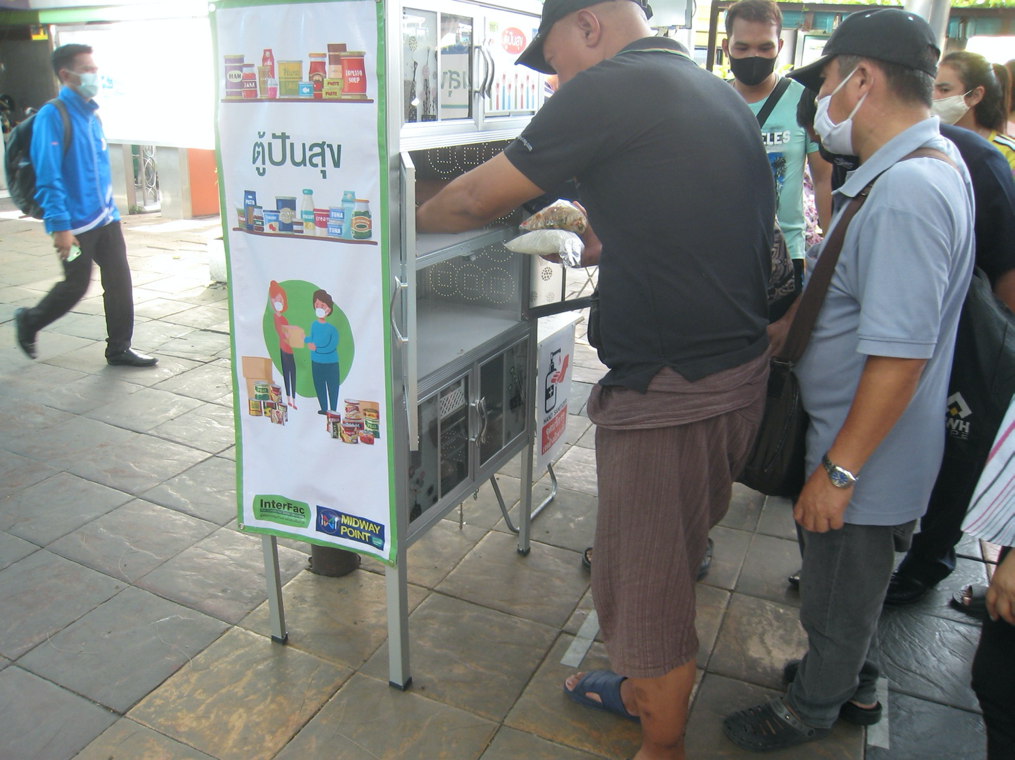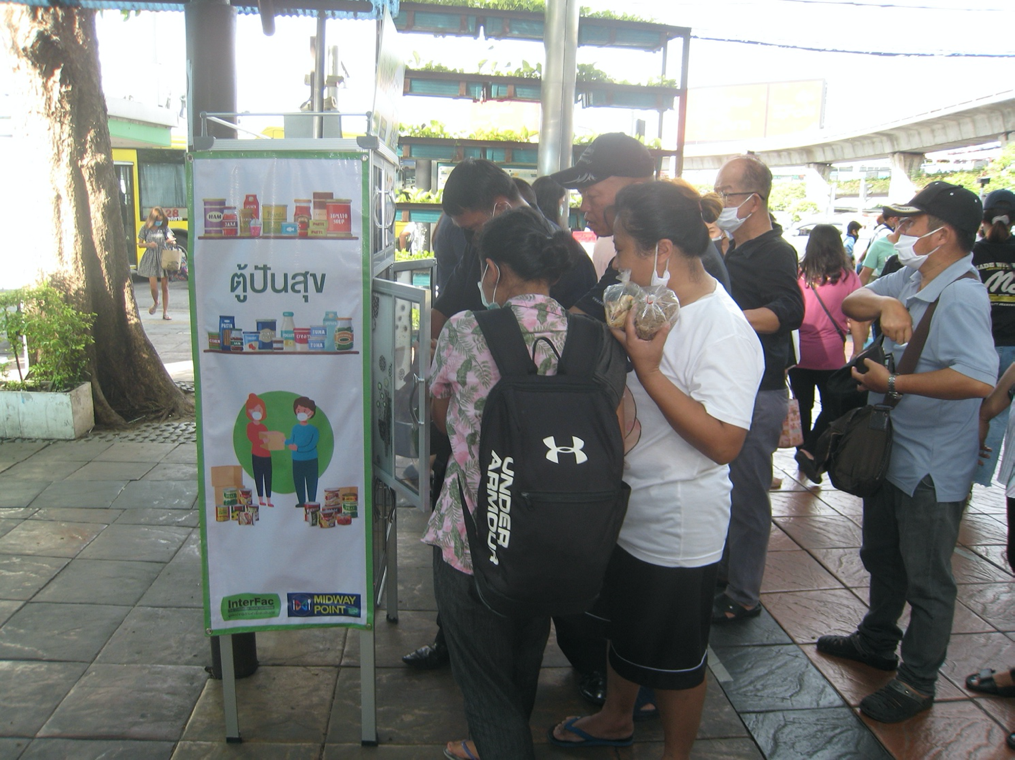CONVERSATION #4(Keiko Sei)
20.08.13
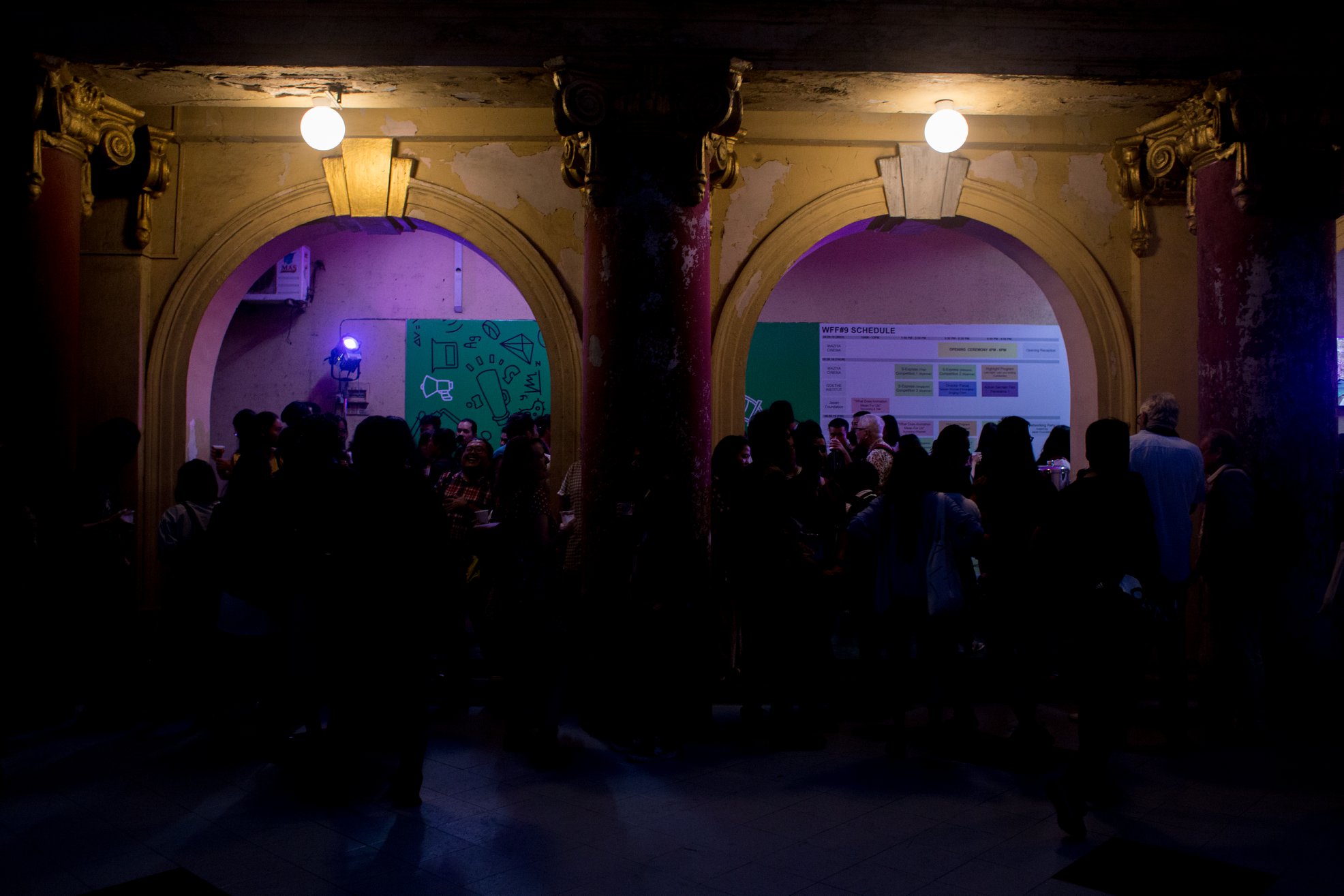
Keiko Sei(Curator, Researcher on Media Activism)
Interview by Haruka Iharada(Research Associate, Tokyo University of the Arts)
There are two things I would like to ask you about during this interview. Firstly, you have been deeply involved in Myanmar’s film scene for a long time, including the Wathann Film Festival and I would be interested to learn how you got to this point, and what you think about Myanmar’s film culture now? And the second thing I would like to ask you about is the effect of the spread of Covid-19 on art or cultural movements in Thailand. This Question is related to a lecture given at the University last year. First of all, how did you come to work in Myanmar, and what were you working on there at the time?
I had various connections with Myanmar from before. And in 2002, I took the opportunity of an invitation to participate in the “Collaboration, Networking and Resource-Sharing: Myanmar” project to visit the country for the first time. This was an event focused on contemporary art, and you can read more about it in my article on the artscape website Then I went back to Eastern Europe, where I was based at the time, and soon returned to Myanmar to begin creating a place to study film there.
What exactly did you do to create a space to learn about film?
Well, I’d watch all the films I could with the locals, and discuss them together. And we went “mushroom hunting.”
“Mushroom hunting”?
Yes. That’s just what we called it. At the time, opportunities to see foreign films were limited in Myanmar but there were so many pirated copies on the streets. So, we decided to do a sort of workshop on these pirated copies. Our approach was to interpret pirated copies as “mushrooms.” First of all, we think of a city as a forest. In that forest, there are many “mushrooms.” In that case, we need to decide whether a particular mushroom is toxic to us or, if we can eat it, what kind of nutrition we can get from it. In other words, we can’t survive without this kind of knowledge about mushrooms. It’s an example of the kind of thinking whereby we decide to use a certain idea as a basis for discussion about the films.
I see. It’s a very humorous name.
Culture is not complete or developed until we discuss it. This is of the utmost importance. In addition, the more people from different backgrounds and cultures that participate, the richer the product of such discussion. The lack of this opportunity is a very serious problem for us. Therefore, we focused on creating a space for discussion in particular, as a space for film. And we mainly used tea shops for this. You’ve heard of Myanmar’s teahouse culture, right? Like the café culture in Europe, the tea house is an essential space for people in Myanmar to talk and discuss all kinds of things. There were two places for “mushroom hunting.” The first was in Chinatown where all sorts of movies, from classics to trash, were sold in a jumble. You need a wealth of experience for a “this is it” find by yourself there. This place is for seasoned veterans. The other is the “Memory” video shop on 47th Street. The owner has made a conscious effort to collect classic films, so the films there have already gone through a selection process. So, that place was the standard for beginners. It’s very difficult for a video store like this to stay afloat anywhere in the world, and it seems like Memory is also really struggling, but I hope they’re able to stay open.
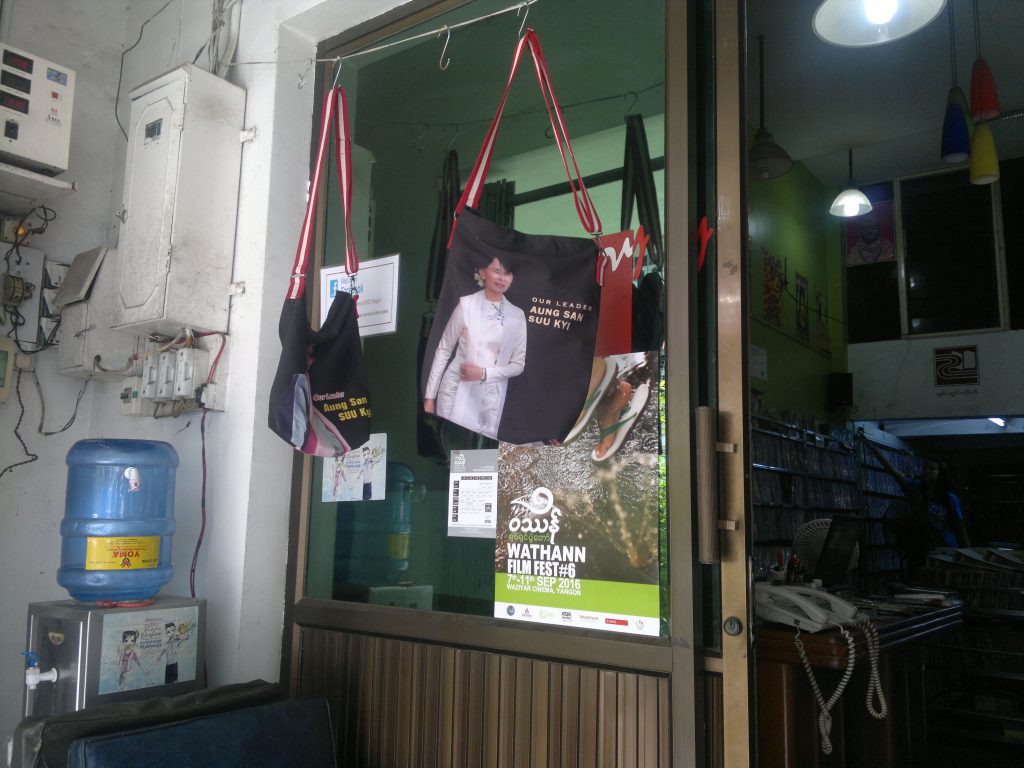
Later on, colleagues at FAMU (Film and TV Faculty of the Academy of Performing Arts in Prague) started to help me with this project. FAMU and the Czech government set up a comprehensive support system, organizing workshops in Yangon with FAMU faculty, and sending out excellent students from those workshops to study at FAMU.
We also had support from theInstitut Français for the location of workshops. We held the Czech Animation Festival as an opportunity to introduce the Czech Republic and FAMU to Myanmar. The Czech ambassador at the time, and the dean of FAMU, came to see us.
Is this around 2004?
That’s right. From that point on, these workshops led to an increase in the number of students from Myanmar going to study in the Czech Republic. The overseas study I’m talking about takes two forms: one is long-term study at FAMU; the other is short-term, for participation in workshops there. Two people from the Wathann Film Festival and The Maw Naing, who made The Monk, were long-term students. For long-term overseas study abroad, there is an International Program, and also a Czech Language Program which begins with the study of the Czech language and lasts for five years. By the way, The Monk is a production by Czech TV, and the Czechs provide assistance with production. The new film by Aung Min, who went for a short-term period to participate in a scriptwriting workshop, will also be a co-production with Czech TV.
What I felt for Myanmar filmmakers was the strength of their spirit of sharing. Training for film in Central Europe and the rest of the Western world provides them with the opportunity to see a huge number of films, so the experience of studying abroad offers a substantial amount of exposure to new information. The young generations from Myanmar who studied abroad at that time were filled with a sense of purpose that they must bring back the stimulation and knowledge they received from their experience studying overseas and share it with their country. I don’t know if it’s right to call it Otaku culture, but it seems to me that the Japanese intelligentsia have a tendency to keep information and knowledge to themselves, and I think it would be of great benefit to learn this kind of spirit from Myanmar. It is based on this spirit of sharing that Thu Thu Shein, Thaid Dhi, and others established the Wathann Film Festival. However, the country was still under a military government at the time. Although we sensed some changes in the situation, we were also concerned. However, in response to their strong feelings, we did our best to support them in holding this film festival that was put together from scratch. That was in 2011.
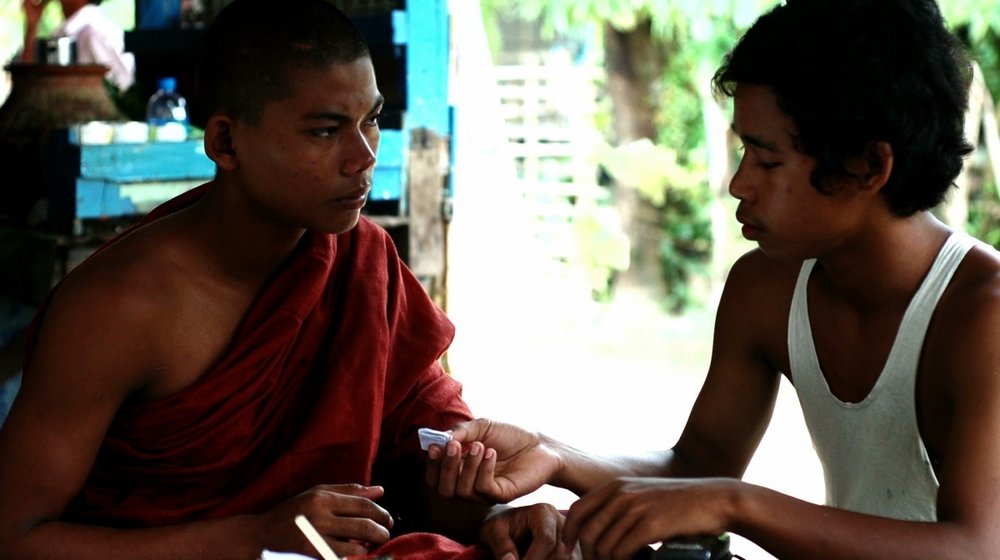
20 years is a lot of history. What is the biggest change you’ve seen in your 20 years observing Myanmar’s film scene?
In today’s Myanmar, there has been an explosion of opportunities to watch foreign films, with theatrical releases, film festivals, and the Internet. And I would say that the development of online discourse spaces, especially the rise of Facebook, would be the biggest change in the young film community.
I also think the ripple effect of Facebook in Myanmar is amazing. I thought the same thing in another interview before.
It’s becoming something of a new religion. In the film community, the frequency and speed of information exchange and discussion has changed so much. I think the “Myanmar Filmmakers Network” launched by the members of the Wathann Film Festival is also a significant step. The “Anti-Cheesy Myanmar Film” campaign is symbolic of developments. This campaign saw the younger generation, exposed to a wealth of images, criticize the comedy and melodrama-driven entertainment films of Myanmar’s previous generation with the title “Anti-Cheesy Myanmar Film.” Moreover, this criticism is not only directed at the works themselves, but also at the generation that has been making them. And therein lies criticism of the government and the censorship system, asking why censorship was not resisted. The generation that was being criticized argued their case based on the severity of the censorship at the time, and this developed into a point of considerable controversy. For example, the younger generation said, “Look at Iranian films.” Their argument was, “Look at Iranian films. Despite strict religious as well as political censorship in Iran, they are producing many internationally-recognized films overflowing with humanity on low-budgets.” The younger generation is familiar with Iranian films. This series of developments in the “Anti- Cheesy Myanmar Film” campaign and debate has garnered a lot of social attention in Myanmar. It was even picked up by national television and made into a program featuring dialogue between different generations of filmmakers.
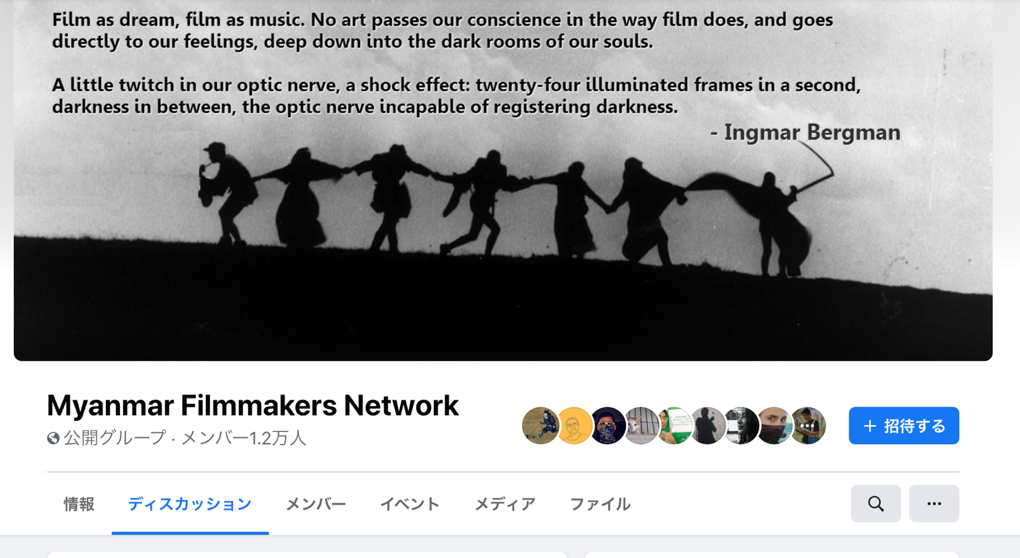
I also feel the Internet controversy in Myanmar, including the scale of the debate, has tremendous force. Of course, even in Japan there are online arguments over images and movies on social networking sites, issues like “flame wars” and so on, but even by comparison, I am often amazed at the sense of speed with which things like this campaign develop into controversy in Myanmar.
Compared to when I first started visiting Myanmar, and it was possible to openly discuss these generational arguments and to be able to laugh about various stories from the past, I feel that a lot has changed now.
Right. So, could you tell me about the Internet movements in Thailand?You are currently based in Bangkok, and last year you gave a presentation at TUA on a range of trends in art and media activism in Thailand, but is there anything that you’ve noticed in particular about Internet movement in Thailand during the coronavirus crisis?
In Japan, film and TV stars are finally speaking out politically and making headlines, but even here, for example, there are discussions about why some stars are sensitive to the #BlackLivesMatter campaign and publicly express their support, but not responding to the issue of discrimination in their own countries. In other words, their endorsement of BLM is seen as a deception. Recently, there was some criticism concerning a Thai activist who went missing in Cambodia, the first model and actress to be selected from Thailand to be an ambassador for UNICEF’s refugee relief campaign, for being active in the campaign to save refugees around the world but not speaking out on the issue of refugees and asylum seekers in her country. Both Japan and Thailand are in the early days of “celebrity political statements,” so to speak, and I believe that the stars will continue to mature in their handling of such statements through repeated trial and error going forward.In this series of Internet movements, it is the #MilkTeaAlliance, a movement that occurred around the Covid-19 pandemic, that I’ve found most interesting. This is an online dispute between China and other Asian countries, Thailand foremost among them. In the statements and reactions of people on the Thai side of this controversy, their sense of language, the tact and application of their use of language, is remarkable. There are many topics in Thailand, including defamation of the king, that cannot be expressed directly in words. I think that’s why people have developed a supple sense of language, so as to have nuanced and humorous conversations using code and abstract forms of representation. The memes are fantastically good too. They have a real affinity for the Internet. What’s also interesting about this Milk Tea Alliance movement is that it has developed in a multilingual space. Of course, the development of discourse on SNS and online is going strong in Japan as well, starting with 2ch and expanding from there to Anonymous, but I get the impression that discussion is limited to the domestic scene.
In terms of the impact of Covid-19, some media outlets (the topic has also been covered in the press) see it as an Anti-Chinese movement stemming from the virus, and its online discussions have included topic about things like eating or not eating bats. As for myself, I don’t think the occurrence of this Internet dispute itself has anything directly to do with Covid-19. However, Covid-19 certainly may have contributed to its growth.
What do you expect to happen after Covid-19?
In the United States, K-pop fans are currently making a big splash with their online political participation. They have been engaging in activism, taking down a website where police called on citizens to send videos of protesters’ violations during the BLM protests, and making large numbers of online reservations for Trump’s rallies to make empty seats more conspicuous. This is due to the background of K-pop fans’ familiarity with the Internet, and their Internet skills. This movement involves “lending” the skills they used to use to raise their own preferred artists through the charts to human rights issues as well. The impact of these movements on the younger generation is enormous. During these developments, even the boyband BTS has made a political statement. K-pop is immensely popular in Southeast Asia, including Thailand and Myanmar, so Thai netizens, inspired by American fans, may be roused into action. After all, Thai netizens also have the proper skills, having successfully defeated Chinese officers in an online battle. In the future, netizens in Thailand may, for example, start to “lend” their skills or participate as supporters elsewhere. This might lead to Thailand becoming more actively involved in international issues as well as domestic issues. Maybe. I feel like the Milk Tea Alliance is a good example to start.
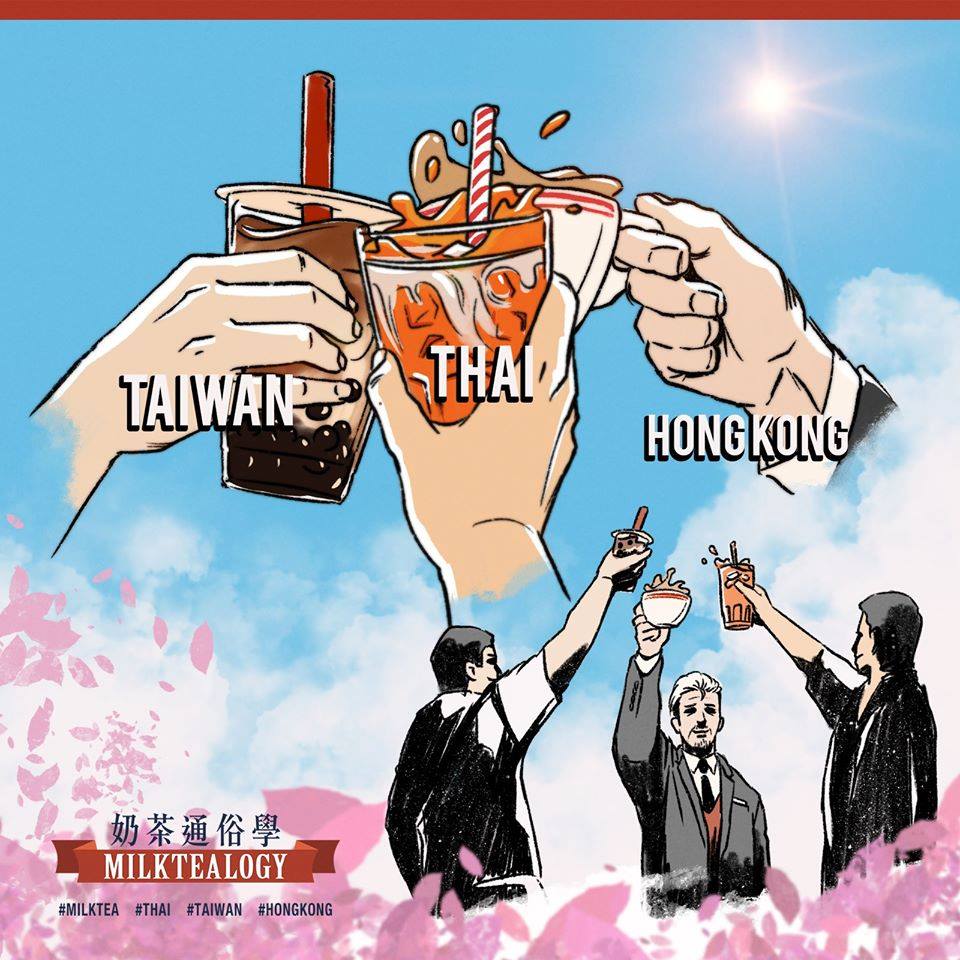
To give you an example of a development that has emerged out of Covid-19, with the surge in the number of people losing their jobs and in need, action was taken to help those people, with an online call to help leading to unattended shelves being set up all over the city, where anyone can leave items that others might need, and those in need can take them. This is a new type of donation in Thailand. Until now, donations in Thailand have generally been made by the upper class as charity. This would be more of a mechanism to maintain the class system, but in this new type, people can help those in need regardless of the hierarchical structure of class. I think this is the Internet generation’s sense of “sharing.” To make an analogy between donations and information, then the previous form of charity constitutes proclamations or propaganda, travelling vertically from top to bottom, with those below as silent recipients; but the unmanned shelf format, is a kind of Internet where information is shared freely and horizontally. In this way, the sentiment of the Internet generation is changing the reality in Thailand, little by little.
During the coronavirus crisis, the netizens, many of whom were used to operating from home, have been stronger than anyone else. The continuation of the coronavirus crisis will bring hardship to the society for some time to come, and we shall see if these netizens would bring any change during this period in the real world.
